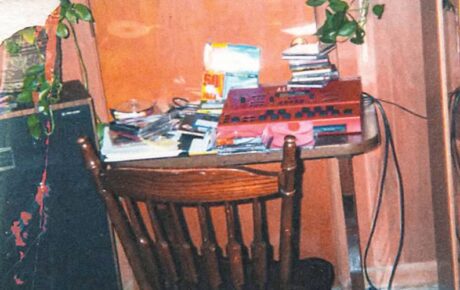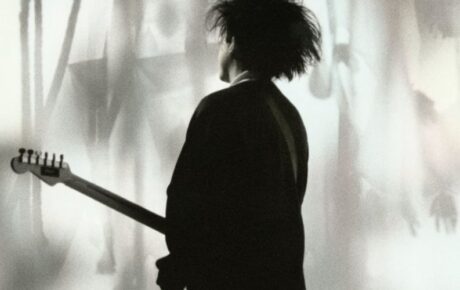Get your boots out of the closet, we’re ready to stomp again!
Mumford & Sons know who they are, and they’re happy to share that with you if you want to listen.
It’s been seven years since we last heard from Marcus Mumford & Company, but somehow it feels like even longer. If you’re anything like me, your first reaction to hearing about a new Mumford & Sons album was “Oh yeah, Mumford & Sons, I remember them…”
This positions the band in a tricky situation – are they a nostalgia act (15 years since their debut can feel like a lifetime ago), are they a legacy band trying to regain relevance, or are they a constant artistic collective who happen to move slower than the modern media and mindset are used to comprehending?
New album Rushmere appears to answer that question with a resounding “yes, that last one”.
If this was a band trying to ‘come back’, then they would throw everything at the wall – they’d have 7 years of ideas and influences fighting for space and everything would feel big and desperate.
There is no desperation here, as evidenced by quiet promotion and lack of ‘look at me’ zeitgeist chasing. This album is charmingly restrained to 10 tracks – this is not a ‘more is more’ record.
What is most striking about Rushmere is the comfort. This is clearly a band who know what they want to do and have been doing it this whole time.
So absolutely get your boots out – but if you’re expecting a fast paced stomp along of ‘Little Lion Man’ and ‘I Will Wait’, you are going to have to tone it down a bit. Rushmere, ironically, is not in a rush to get you anywhere.
Everything we love about Mumford & Sons is still there, though. The banjos are back, the bass drum is present and accounted for, the harmonies are as rough and singalong ready as ever. Put the title track ‘Rushmere’ on for the full M&S experience:
The album kicks off with ‘Malibu’ – immediately welcoming us back into the warm tones of Marcus Mumford’s voice/guitar combo. They don’t do songs, they do hymns. We are back at the altar of pop-folk, and maybe it has been too long since our last visit.
At just over 34 minutes in length, the big bombastic banjo explosions are constrained to just 4 songs. The majority of Rushmere is gentle, acoustic, controlled. But when it hits, it hits hard.
Clearly influenced by the Country Music takeover of the mid 2020s, the band have bent their folksiness towards the country twang more than ever on second track ‘Caroline’. The rowdy tune about a volatile relationship is probably the biggest departure from the classic Mumford sound we get on Rushmere – and it’s a fun one!
Veteran country producer Dave Cobb is at the helm, and the recording sessions in Nashville, Tennessee and Savannah, Georgia can be heard subtly throughout the British bands 5th album – with ‘Caroline’ being the most obvious example.
We get another stomp along banger with ‘Truth’ that lets bassist Ted Dwane take centre stage and go to town on his instrument. He’s an absolute beast on the bass, and deserves the spotlight more often in my opinion.
As previously stated, the slight majority of Rushmere is made up of introspective gentle acoustic tinklers. While they threaten to all blend into each other (especially with the potential of being overshadowed by the bigger tracks) there are plenty of highlights to distinguish themselves as worthy additions to the Mumford oeuvre.
‘Where It Belongs’ is a gorgeous slow burn about anger management.
“When you speak, do you think you could do it kindly
Or does your anger overwhelm?”
It’s an impressive feat to turn that into a delicate melody that is both emotional and beautiful to hear.
My favourite of the finely tuned folk pieces is ‘Blood On The Page’, which features American singer songwriter Maddison Cunningham. She’s already won a Grammy, so doesn’t need the help, but the feature does feel like a great assist from on the genres behemoths.
The evolution of Mumford & Sons feels organic. I imagine it through the locations it feels like the music should be performed.
Sigh No More, the era defining debut album that introduced foot stomping banjos to the popular consciousness was made for a barn. It feels like wood and hay, a hootenanny party for a close knit community.
Babel, 2012’s blockbuster step up (2x Platinum in NZ!) gave us stadium sized bangers that felt like a move from barn dances to cathedrals. Wilder Mind confirmed this transition, Mumford & Sons sounds ornate and hallowed.
Delta surprised everyone with the band discovering electricity. Suddenly we’re in modern times.
Rushmere feels like a move back to the echoing acoustics of a church. They are in their happy place. Even the album cover harkens back to the Babel times, with the band sitting placidly as the world rushes on around them – the perfect visual metaphor for band content to go at their own pace.
This is a lovely and welcome record. They could have gone overboard, tried too many things – but that is not the Mumford & Sons way.
Less is more. And when you do what you love, the more will the come through anyway.












